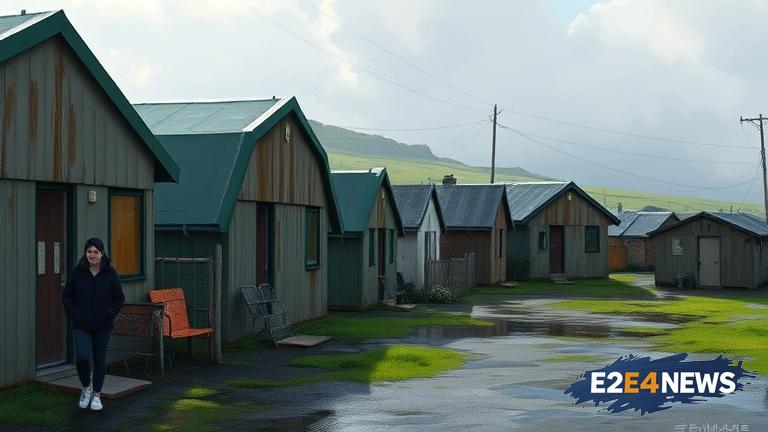A recent controversy has erupted in Ireland regarding the accommodation of asylum seekers, with some local residents expressing strong opposition to the idea of housing them in their community. The debate has sparked a wider discussion about the country’s asylum seeker policy and the resources available to support these individuals. At the heart of the issue is the concern that the community already struggles with poverty and limited resources, and that accommodating asylum seekers would further strain these resources. Residents have voiced concerns about the potential impact on local services, including healthcare and education. Some have also expressed fears about the potential for increased crime and social unrest. However, others have argued that Ireland has a moral obligation to provide a safe haven for those fleeing persecution and war. The government has stated that it is committed to providing adequate support and resources for asylum seekers, but some critics argue that this commitment is not being adequately fulfilled. The controversy has highlighted the need for a more nuanced and informed discussion about asylum seeker policy and the role that communities can play in supporting these individuals. It has also underscored the importance of addressing the root causes of poverty and resource constraints in these communities. By providing more support and resources for local services, the government can help to alleviate some of the concerns that have been raised. Additionally, education and outreach programs can help to promote greater understanding and empathy for asylum seekers. The issue has sparked a national conversation about the kind of society that Ireland wants to be, and how it can balance its moral obligations with the practical realities of supporting asylum seekers. As the debate continues, it is clear that there are no easy answers, but by working together, it may be possible to find a solution that works for everyone. The government has announced plans to increase funding for asylum seeker support services, which could help to alleviate some of the concerns that have been raised. However, some critics argue that this funding is not enough, and that more needs to be done to address the root causes of poverty and resource constraints in these communities. The controversy has also highlighted the need for greater transparency and accountability in the asylum seeker accommodation process. By providing more information about the number of asylum seekers being accommodated and the resources being provided to support them, the government can help to build trust and confidence in the system. Furthermore, the issue has sparked a wider discussion about the role that communities can play in supporting asylum seekers. Many communities have come together to offer support and welcome to asylum seekers, and this has helped to promote a more positive and inclusive atmosphere. However, more needs to be done to support these efforts and to ensure that all communities are equipped to provide the support and resources that asylum seekers need. In conclusion, the controversy over asylum seeker accommodations in Ireland is a complex and multifaceted issue that requires a nuanced and informed approach. By working together and providing more support and resources, it may be possible to find a solution that works for everyone. The government, local residents, and asylum seekers themselves all have a role to play in this process, and by engaging in a constructive and respectful dialogue, it may be possible to build a more inclusive and compassionate society. The issue has also sparked a discussion about the need for a more comprehensive and sustainable approach to asylum seeker policy, one that takes into account the long-term needs and challenges of supporting these individuals. This could involve providing more support for education and job training programs, as well as initiatives to promote social cohesion and community engagement. Ultimately, the goal should be to create a society that is welcoming and inclusive, where all individuals can thrive and reach their full potential.
